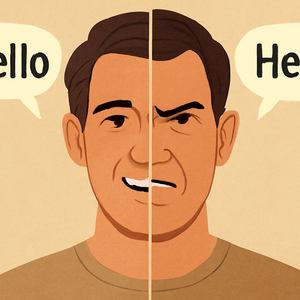The Silent Power of Empathy: Transforming Workplaces from Within

Empathy—the ability to understand and share the feelings of others—has always been crucial for building strong personal relationships. But its role in the professional sphere is now indisputable. A 2021 study by Catalyst revealed that employees with empathic leaders are more innovative, engaged, and loyal to their organizations. This trend is reinforced by a shift in employer priorities: recent job postings and interviews emphasize the importance of soft skills, with candidates who demonstrate emotional intelligence standing out in a competitive job market. In a landscape defined by uncertainty and diversity, empathy is not just a “nice-to-have”—it is an essential competency for leaders and teams alike.
Empathy in Action: Real-World Stories
1. Bridging Cultural Divides at a Tech Startup: At a rapidly expanding fintech company, a culturally diverse development team struggled with miscommunication and missed deadlines. Recognizing the mounting tension, team lead Priya introduced “empathy circles”—short, structured sessions where employees could share personal stories and professional challenges. This practice helped team members understand each other’s backgrounds, pressures, and motivations. The result? Misunderstandings decreased, collaboration improved, and job satisfaction soared, as reflected in internal surveys and a notable improvement in project delivery times. 2. Empathy Sparks Innovation at a Retail Giant: A national retail chain’s product development team hit a creative wall, unable to connect with customer needs. Enter Marcus, a junior analyst, who advocated for “customer shadowing”—spending a day experiencing the store from a shopper’s perspective. By walking in their customers’ shoes, the team gained invaluable insights into the overwhelm caused by too many choices. This empathetic approach led to a streamlined product offering and a 15% increase in sales within two quarters, demonstrating how empathy can drive innovation and tangible business results. 3. Supporting Mental Health Through Empathetic Leadership: During the pandemic, HR manager Sofia observed a spike in absenteeism and disengagement. Instead of imposing stricter attendance policies, she initiated virtual “wellness check-ins” where employees could openly discuss their struggles. By listening without judgment and connecting staff to mental health resources, Sofia fostered psychological safety. The outcome was a significant drop in turnover and a more connected, supportive workplace culture.
Why Empathy Drives Success
Empathy’s transformative effect on organizations can be traced to several key benefits: - Fostering Trust: Empathic leadership builds trust, the foundation for high-performing, innovative teams. - Enhancing Collaboration: When employees feel understood, they are more likely to contribute ideas, voice concerns, and support collective goals. - Boosting Innovation: Empathetic environments encourage experimentation and risk-taking, as employees know mistakes will be met with understanding rather than blame. - Reducing Burnout: Early recognition and support of colleagues’ stress or challenges can help prevent burnout, fostering greater well-being and retention.
Cultivating Empathy in the Workplace
Empathy is not an innate gift bestowed on a lucky few; it is a skill that can be consciously developed and strengthened. Here are practical ways organizations and individuals can nurture empathy: - Practice Active Listening: Pay full attention to speakers, reflect on what is said, and ask thoughtful follow-up questions. - Encourage Storytelling: Allocate time for colleagues to share personal experiences and diverse perspectives, helping teams bond and build mutual understanding. - Seek Diverse Viewpoints: Proactively invite contributions from team members with different backgrounds, skills, and worldviews. - Model Vulnerability: Leaders who openly share their own struggles and uncertainties set the tone for authenticity, inviting others to do the same.
Empathy may not generate the buzz of disruptive technologies or headline-grabbing market moves, but its influence is quietly revolutionizing the modern workplace. As organizations embrace empathy, they unlock higher engagement, greater innovation, and stronger resilience—qualities that are indispensable in today’s complex environment. The stories above illustrate that leaders and teams who prioritize empathy aren’t just making work more humane; they are laying the groundwork for sustainable, long-term success. As the spotlight shifts toward soft skills in recruitment and promotion, empathy stands out as both a differentiator and an imperative. By cultivating this silent power, companies are not only responding to the demands of a changing workforce—they are building the foundation for workplaces where people and organizations can truly thrive.
Employee Experience Manager
Google, Salesforce, Deloitte, Target
Core Responsibilities
Design and implement programs that enhance employee engagement, well-being, and workplace culture.
Leverage employee feedback to identify pain points and propose empathetic solutions for diverse teams.
Collaborate with HR, leadership, and DEI teams to foster an inclusive and psychologically safe environment.
Key Skills & Qualifications
Strong background in organizational psychology, HR, or people operations.
High emotional intelligence and proven ability to navigate sensitive conversations.
Experience with survey tools, focus groups, or pulse-check platforms (e.g., Glint, Culture Amp).
Diversity, Equity & Inclusion (DEI) Program Lead
IBM, Microsoft, United Way
Core Responsibilities
Develop and manage initiatives that promote empathy and understanding across multicultural teams.
Facilitate workshops and training on unconscious bias, inclusive leadership, and cultural competence.
Analyze data to measure program impact and recommend adjustments for greater workplace harmony.
Key Skills & Qualifications
Expertise in DEI strategy, facilitation, and cross-cultural communication.
Ability to mediate conflicts and build consensus among stakeholders.
Familiarity with compliance and legal frameworks related to workplace diversity.
Organizational Development Consultant (Empathy-Focused)
McKinsey, Korn Ferry, healthcare systems, large enterprises
Core Responsibilities
Assess organizational climate and recommend interventions to cultivate empathetic leadership and resilient teams.
Lead empathy mapping sessions and 360-degree feedback processes for leadership development.
Guide change management initiatives that emphasize psychological safety and employee voice.
Key Skills & Qualifications
Advanced degree in organizational development or psychology preferred.
Strong facilitation and coaching skills; experience with tools like DiSC or MBTI a plus.
Track record in implementing culture change within complex organizations.
Customer Insights Researcher (Human-Centered Design)
Airbnb, Shopify, Nike, Procter & Gamble
Core Responsibilities
Conduct in-depth interviews, empathy mapping, and customer shadowing to uncover user needs and emotional drivers.
Translate qualitative findings into actionable recommendations for product or service design.
Present insights to cross-functional teams to inform strategy and foster a customer-centric culture.
Key Skills & Qualifications
Background in UX research, anthropology, or psychology.
Proficiency with tools for qualitative research (e.g., Dovetail, UserTesting) and storytelling.
Strong collaboration skills to bridge gaps between customers, designers, and product managers.
Workplace Mental Health Program Coordinator
Johnson & Johnson, Accenture, healthcare organizations, educational institutions
Core Responsibilities
Design and facilitate initiatives such as wellness check-ins, mental health days, and resource sharing.
Act as a confidential resource for employees seeking support, referrals, or accommodations.
Measure program outcomes and adapt strategies to reduce absenteeism and promote resilience.
Key Skills & Qualifications
Certification in counseling, social work, or employee assistance program (EAP) administration.
Deep empathy, strong listening, and crisis intervention skills.
Knowledge of labor regulations and best practices in workplace well-being.


